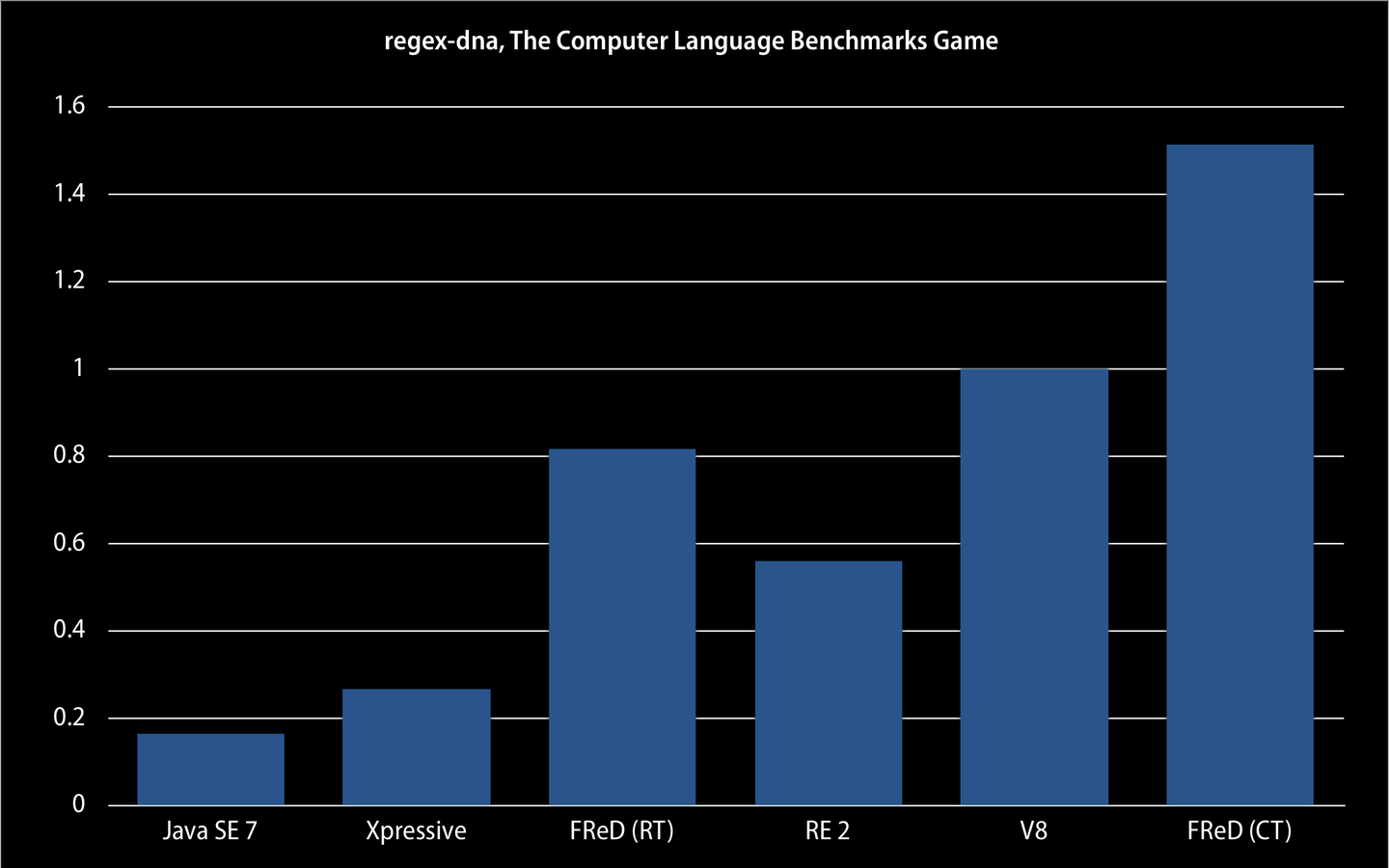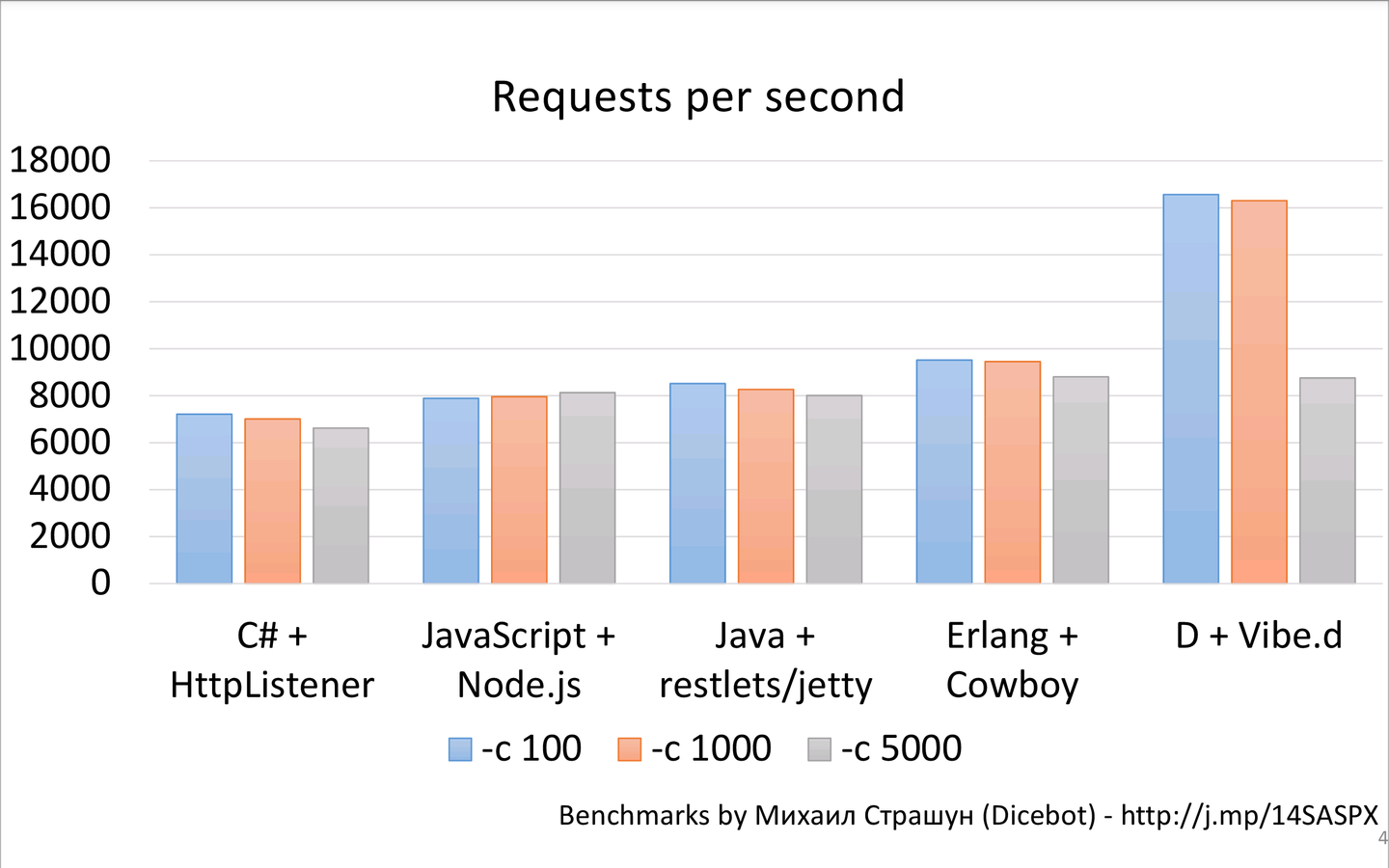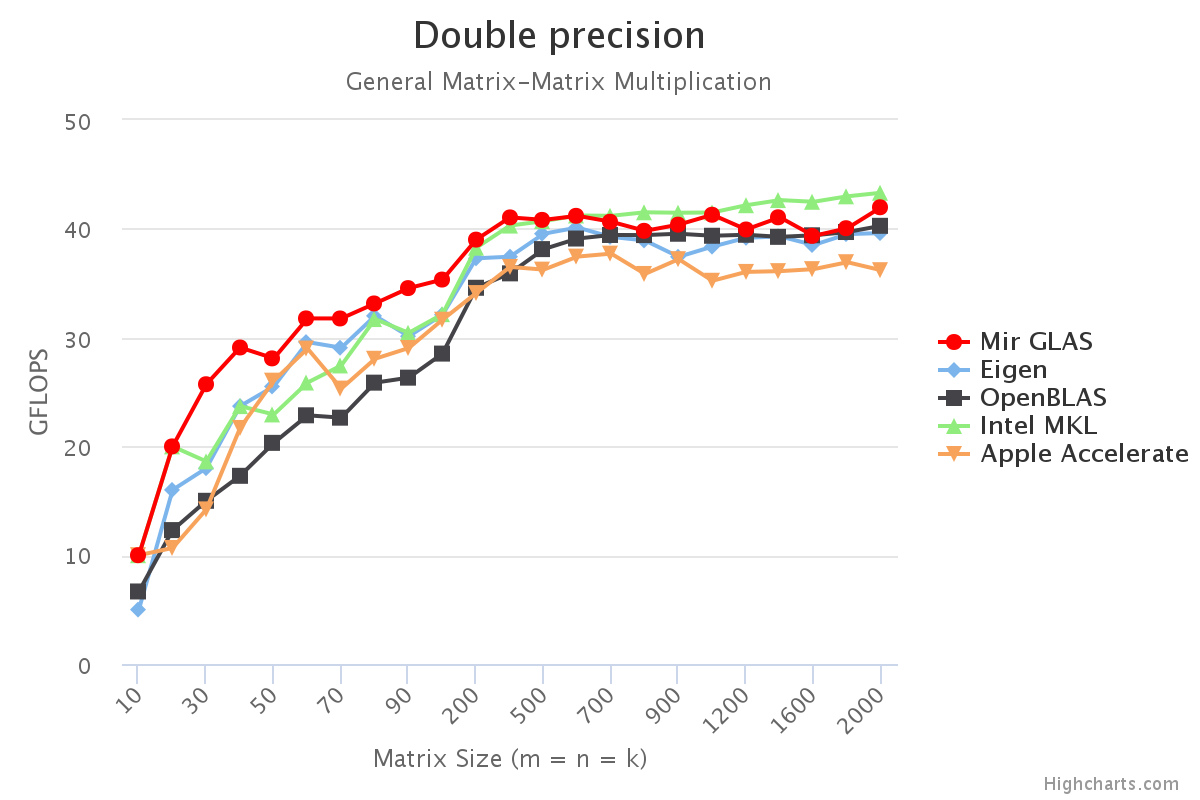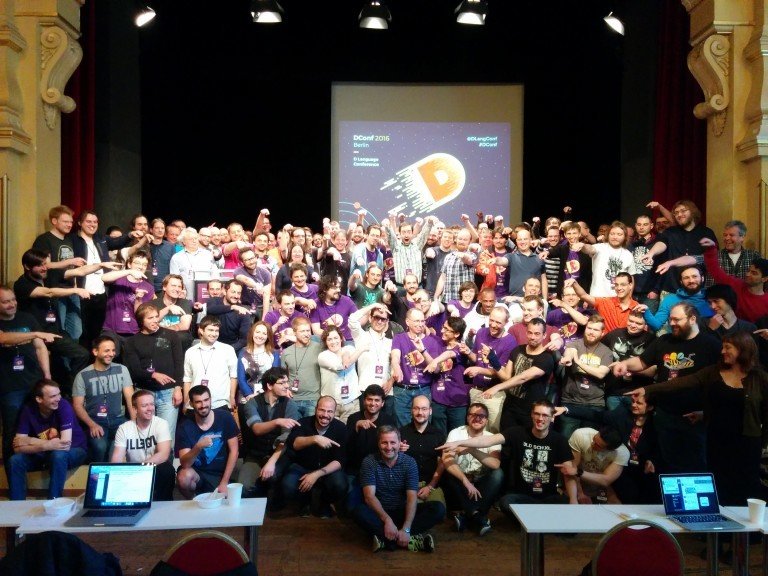September 2016
Updated: December 2018
Meta
- Ask questions, interrupt, terms you don't know
- Info you have to dig for
- Not a D expert, just used it for years
The Language Zoo
- Scripting - Python, Ruby, Javascript, Perl, usually interpreted
- Application - Java, C#, Go, use Virtual Machine and Garbage Collection, often with Just-In-Time compilation
- Systems programming - C, C++, Rust, Swift, Obj-C, use Ahead-of-Time compilation
- Special purpose - R, Erlang, Julia, Dart
- D - one language to rule them all, AoT-compiled, GC that can be turned off, very fast compilation
Where to first?
import std.stdio, std.algorithm;
void main()
{
string inputLine;
string[] tempArray;
while((inputLine = stdin.readln()) !is null)
tempArray ~= inputLine;
sort!((a, b) => a > b)(tempArray); // descending order
foreach(line; tempArray)
write(line);
}Classic programming
// Sort lines
import std.stdio, std.array, std.algorithm;
void main()
{
stdin
.byLineCopy
.array
.sort!((a, b) => a > b) // descending order
.each!writeln;
}D component programming

D aims to be a useful programming language... D's job is to get s*** done quickly and effiently and make money for the businesses that use it.- D forum, July 2016
Walter Bright
Creator
- Leading expert at implementing compilers: C, C++, Java, Javascript
- Started by writing one of the first computer strategy games, Empire, in college
- Wrote the first C++ compiler that didn't translate to C first
- Retired in 1999, then started D
- Focus on compile and runtime speed, along with clean source

Andrei Alexandrescu
Co-architect
- 2001: Wrote Modern C++ Design
- 2006: Joined D as co-architect, began version 2.0
- 2010: Wrote the reference book on D 2.0
- 2015: Left Facebook to start the D Foundation

- Design patterns: programmer “expands” mental macros - Total plasticity, no code reuse
- Policy-based design: programmer assembles rigid macros - No plasticity, good code reuse
- DbI: programmer molds macros that communicate with, and adapt to, one another - Good plasticity, good code reuse
How do the co-architects shape the language?
- D1 was simpler, while D2 has a lot more features, like C++
- Community-driven language, with Walter and Andrei as gatekeepers for the compiler and standard library
- No major corporate sponsor, which slows development
- Humble outlook on new features
High-level overview
- In use at WekaIO, Sociomantic, Remedy Games, eBay, Facebook
- Compiled Ahead-Of-Time like Swift, Rust, and Go, plus mobile Java and C#
- Reference compiler, dmd, very fast with small 60 kloc backend: scripting
- DMD frontend written in D tied to LLVM and GCC backends: LDC and GDC
- Garbage-collected, though @nogc usage is increasing
- Available on Windows, macOS, linux/BSD, and Android; iOS mostly done but on hold
Procedural
struct Boo { int x; };
void foo(struct Boo* boo)
{
if(boo != NULL)
{
boo->x = 3;
}
}struct Boo { int x; }
void foo(Boo* boo)
{
if(boo !is null)
{
boo.x = 3;
}
}C
D
Object-Oriented
interface Cat { void roar(); }
class Tiger : Cat
{
public:
void roar(){ privateRoar();}
private:
void privateRoar(){ writeln("Roar!"); }
}
void main()
{
Tiger tony = new Tiger();
tony.roar();
}Functional
immutable int x = 3;
x = 5; // error
int square(int x) pure
{
return x * x;
}
int[] data = [1, 2, 3, 4, 5];
auto oddData = data.filter!(x => x%2 == 1);Features
- Syntax
- Core concepts
- Read Ali's book for more
Modules
module danatic.list;
import std.array : array;
struct List
{
import std.process : spawnShell;
void print()
{
import std.stdio : write;
// implement print
}
}Component programming
- Ranges: read Mike's article
- Read Walter's article
Templates
class List(T, U)
{
List add(T t, U u)
{
//do the add
}
}
void main()
{
auto list = new List!(int, string);
list.add(3, "foo");
}Slices
int[5] a = [1, 2, 3, 4, 5];
int[] b = a[2..$];
b[0] = 1;Concurrency
- Message-passing
- shared and mutexes
- Read Andrei's chapter
Compile-Time Function Execution (CTFE)
int square(int i)
{
return i * i;
}
enum x = square(3);
int y = square(5);Exceptions
try { dangerousCode();}
catch(Exception e) { //process the exception }
finally { //always run this code }
void safeTransaction(Transaction foo) nothrow
{
atomicTransaction(foo);
scope(failure) rollbackTransaction(foo);
process(foo);
scope(exit) unprocess(foo);
saveToDisk(foo);
scope(success) writefln("exited with a safe transaction");
}Unit tests and Contracts
class Squareroot
{
long run(long x)
in { assert(x >= 0); }
out (result)
{
assert((result * result) <= x && (result+1) * (result+1) > x);
}
body
{
return cast(long)std.math.sqrt(cast(real)x);
}
unittest
{
Squareroot sqroot = new Squareroot;
assert(sqroot.run(3) == std.math.sqrt(3);
assert(sqroot.run(-2) == std.math.sqrt(-2)); //error
}
}Mixins
int a = 5;
mixin("int b = a;"); // b exists and is now 5Current usage and successes

Regular Expressions
Sociomantic
- Real-time ad auctions
- mostly D1 without GC, moving to D2
- Open-sourced Ocean, linux only
- Bought for ~$200 million
vibe.d web framework

D front-end
- 60+ kloc of D, ported automatically from simple C++
- Linked against 3 C++ backends: dmc, gcc, llvm
- Slowly refactored to idiomatic D


C++ following
- CTFE
- Ranges
- static if
Try it out!

intro-d
By danatic
intro-d
Introduction to the D programming language
- 1,934
